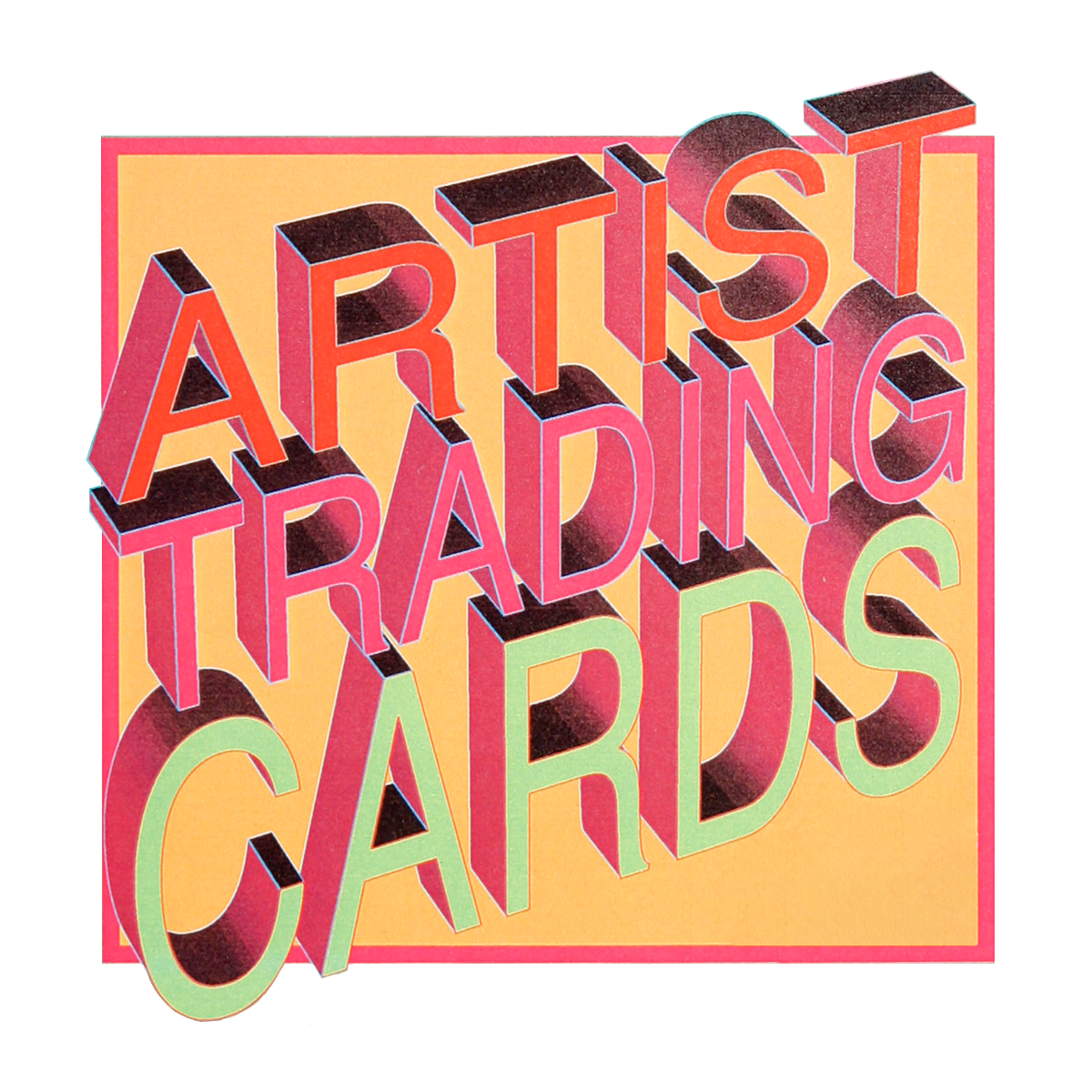
Artist Trading Cards Calgary
Next ATCC Meet-Up at The New Gallery:
January 30th
5:30PM - 8:30PM
Artist Trading Cards (ATCs) are part of an effort to increase the public’s acceptance of art as an aspect of daily life, and to encourage creativity. ATCs are swapped between creators and traded like sports cards. ATCs encourage Calgarians and everyone regardless of background to become active in the local arts community. ATCs are hand produced, original, miniature works of art, created on 2.5 x 3.5 inch (64 x 89mm) card stock. There are no restrictions on medium, ATCs run the gamut from painting to collage to rubberstamps, found images, fabric, found objects. The materials used are only limited by your imagination. The subject matter is completely up to you and you’re welcome to take it as light-heartedly or seriously as you wish. Artist Trading Cards can be small editions, series; numbered on the back. They may be 2D or 3D (as long as they fit into trading card sleeves). ATCs are for everyone.






Artist Trading Card Instructions:
1. Produce your own cards
2. Size: 2.5”x3.5” (like a hockey card)
3. Sign, date and number on the back
4. Trade with everybody like mad!
The New Gallery’s Accessibility Notes:
https://thenewgallery.org/Accessibility
The New Gallery’s Community Guidelines
Share the space. Be mindful of your speaking time, make space and time for others to speak, and avoid interrupting others. Please raise your ‘hand’ and let folks know when you’re finished speaking by saying “That’s the end of my thought” or “ I don't have anything else to say at the moment”.
Speak for yourself. Use “I” language; don’t speak for others and don’t share someone else’s stories or experiences. Notice your own biases/judgments and avoid making assumptions about other people. Refrain from talking about other organizations or people and their experiences without permission.
Recognize that we are all in a place of learning. If you say something problematic - apologize, listen to the voices of others, and then learn and adjust your behavior.
Be open to calling in harmful attitudes as well as open to critical self-reflection. If an individual tells you that something you said was harmful to them, listen. Use these situations not to harass or call out, but as a learning experience. Practice being called in. Examine your own privilege and be aware of potential power dynamics that you might contribute to these dynamics.
Ask, don’t assume. Pronouns, racial identity, disability, gender identity, sexual orientation. Even if you share a similar intersection, be mindful that not everyone uses the same language to describe the same thing, and respect that. For example, one person may identify as non-binary and another as gender-queer.
Check in with others and yourself regularly. How are you feeling, where does this feeling sit in your body? Keep these questions open ended and broad and when you ask them, stay curious rather than defensive.
Take care of yourself. Create an environment that will allow you to get in the right posture to learn and reflect. It’s okay if you need to leave at any time. Think of someone you trust whom you can debrief with after stressful conversations and plan to contact them.
Care for yourself can look like:
Staying hydrated.
Taking deep breaths and stretching when possible.
Resting your eyes for a moment.
Having fun!
